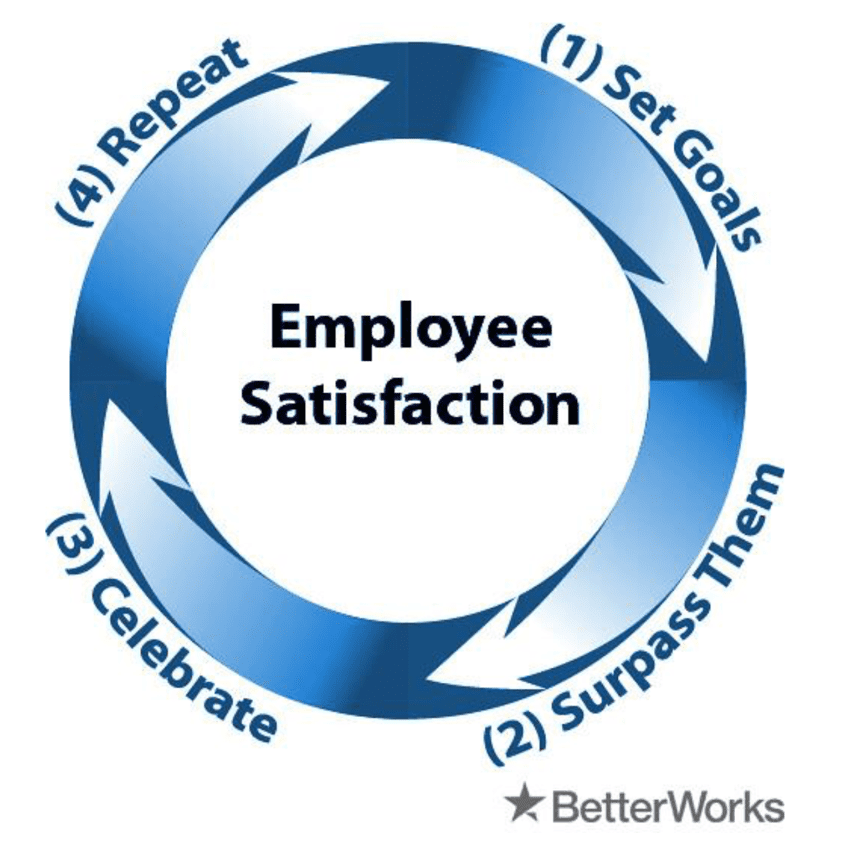Happy employees are productive employees. This is just one of the reasons that successful businesses are finding it necessary to invest in employee engagement.
Employee engagement. That’s a term you hear often in professional settings. But what does it really mean and how does it factor in the success of your business? Well, staff engagement, for the most part, refers to the creation of conditions conducive to all employees making them more committed to the organization. Staff unsatisfied with their working conditions often tend to lack the drive to meet their targets. According to researchers, employee satisfaction is vital for workplace productivity. Personnel who don’t care about their work will detract from the rest of the team. That’s why the needs of employees exist in the fringes of organizations.
Most employers don’t invest in keeping their workers engaged and the consequences are evident in the performance of their business. They are yet to realize the intangible connection between worker wellness and their financial bottom line. If you’re an employer wondering why there’s so much fuss over investing in employees, here are the main reasons why you should invest in their engagement.
Satisfied Employees are Less Likely to Quit
You probably know the pain of losing a member of your organization. The gap they leave behind must be filled. If you don’t, you can bet some of your business processes will fail. But getting someone to fill in the position is easier said than done. The worker who left probably had tons of experience meaning you’ll have to train a new recruit to perform at the same level. That involves a considerable amount of investment, fiscal and time wise. Recruiterbox did research on the cost of acquiring a new staff member and concluded that in service-related industries, employers had to fork over more than $1,000 every time they hire. They came up with the figure after analyzing the costs involved in the job advertisement, recruiter’s salary, travel expense, and sign-on bonuses. You’d expect this to be the case in other industries as well.
Imagine a situation where a couple of your workers feel dissatisfied at the workplace and leave. To fill the gap, you’ll have to fork over about $$2,000 to sign new replacements. If employee satisfaction continues to be a problem, then, you’ll be spending a tidy sum every year hiring new talent. All that fiscal investment adds up over time, and before you know it, your business is spiraling towards bankruptcy. You can avoid recruitment costs by ensuring all your staff are not only satisfied, but they feel that the organization values them enough to invest in them. Just think about it. When are you more likely to show commitment? In a place where you feel like a valued team member or in a setting where you feel unappreciated and neglected? The answer is obvious.

Increased Profitability
Like most employers, you probably pay attention to anything that might increase the profitability of your business. You’ll probably be glad to know that employee satisfaction is the fastest way to guarantee profitability. Once you have dedicated employees working for you, realizing a positive return for your investment is almost guaranteed.
When workers are content with their working conditions, they tend to give their all. The happiest companies today give their employees a central stage. Facebook, for instance, is known for giving its staff plenty of perks. 97% of its employees reported high job satisfaction. Coincidentally, Facebook is one of the most successful corporations today. Everywhere you look, you’re bound to find similar examples. Employee satisfaction goes hand in hand with profits. Just ask Google, Netflix, Salesforce, and HubSpot. All of them make hundreds of millions in profits due to the satisfaction and resulting commitment from their staffs.
Want to break your last profit records? You might want to pay more attention to working conditions and the feelings of your employees, even though that might not be what you learned in business school. All those management classes and assignments, and you can get quick assignment help online, seem to skim over the importance of worker satisfaction and engagement.
Increased Attendance
Have you noted that more and more employees are calling in sick? Well, that might be a sign that they are not satisfied working for you. Disengaged workers don’t care about the success of your business. They are more likely to take up a chance to do something else rather than report to the office.
Research shows that organizations with dissatisfied employees have 41% more cases of absenteeism compared to companies with happy and engaged employees. If you want your staff to pull their own weight, make sure they are satisfied.
Increased Productivity
Another reason why investing in employees is crucial to your business lies in workplace productivity. Workers who find their work interesting, fun, and challenging bury themselves in their work. They want to do everything to perfection. Unmotivated and dissatisfied employees could care less if something went wrong.
These are the main reasons to invest in your employees. Keeping staffs happy and satisfied has the profound impact of improving a company’s bottom line and culture. On the other hand, dissatisfied employees will find every excuse to get out of work. Take the time to invest in the growth and happiness of your employees. In almost every case where a company took an interest in the wellbeing of employees, it realized success. There are lots of ways to ensure your employees are satisfied with their work engagement. However, the most important of them is to ensure all your employees feel appreciated and wanted. Make them feel valued through perks and they will show their appreciation by increasing productivity.


Join the conversation!